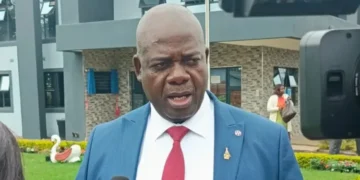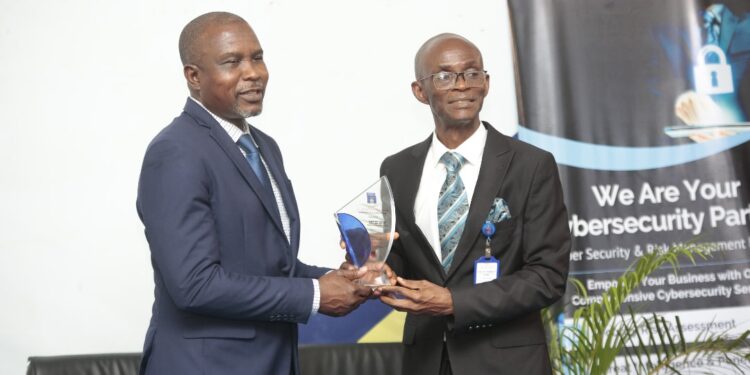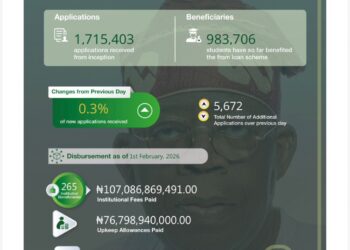Stakeholders in the academia, private sector, and governmental agencies have emphasized the need for a collective effort to strengthen Nigeria’s cybersecurity ecosystem in the face of growing global threat expected to cost $10.5 trillion by 2025.
They made the call to action at a two-day cybersecurity workshop hosted by the Babcock University Information Technology department in collaboration with GXT International.
The workshop, themed “Building a Resilient Cybersecurity Ecosystem: Bridging Academia, Industry, and Organizational Practices,” brought together experts to share knowledge and propose solutions to address critical security challenges.
In his presentation, the Chairman of the Senate Committee on ICT and Cybersecurity, Honourable Shuaib Afolabi Salisu, highlighted the significance of cybersecurity in Nigeria’s growing digital economy.
“Nigeria may have missed out on the first and second industrial revolutions, but we have an opportunity to make a significant impact in the digital age,” he said.
Salisu emphasized the need for a tripartite collaboration involving the academia, industry, and government agencies to develop a robust cybersecurity ecosystem.
He proposed that professors acquire industrial experience during their sabbatical, while students focus on solving real-life problems using Fin-Tech in their final research work.
Corroborating this position, Abdulraman Akanbi, CEO of Sycom, stressed that employers value hands-on experience over theoretical knowledge. “Cybersecurity is not just a profession; it’s a mission to save the digital world,” he said.
Oluwafemi Aminu, Executive Director, Momo PSB, emphasized that cyber resilience is a shared responsibility requiring coordinated action from all stakeholders. “We cannot afford to operate in silos; a unified, ecosystem-driven approach is the only way forward in today’s threat landscape,” he said.
Cyber resilience goes beyond traditional cybersecurity. While cybersecurity focuses on protecting systems, networks, and data from attacks, cyber resilience ensures an organization can continue operations during and after an attack.” he added.
Honourable Tunbosun Alake, Lagos State Commissioner for Innovation, Science, and Technology, said the state is doing all to ensure Nigeria takes its place in the committee of nations in terms of technology.
“Your focus becomes your reality. If you see Nigeria as a jungle, you only see a jungle, but if you see it with its various potentials, so it becomes. We need to work together to achieve the Nigeria of our dreams,” he said.
Babcock University’s President/Vice Chancellor, Prof. Ademola Tayo, commended the timeliness and relevance of the program. “I commend you for coming up with this program at a time like this. With the risks posed by cybercrime, this program could not have come at a better time to address this very germane issue to our national growth and development.”
Beyond recommendations, the workshop provided platform for presentation of the Excellence Cybersecurity Leadership Award to the Ogun State governor, Prince Dapo Abiodun, Honourable Alake and others in recognition of their contribution to building the digital infrastructure in Nigeria.
Senator Salisu who received an Advocacy Excellence Award, received the Prince Abiodun’s award on behalf of Governor while the Delta State Commissioner for Innovation, Science and Technology, Dr. Odinigwe Daniel Odigie representing the Delta State Governor received the award on his behalf.

























































































 EduTimes Africa, a product of Education Times Africa, is a magazine publication that aims to lend its support to close the yawning gap in Africa's educational development.
EduTimes Africa, a product of Education Times Africa, is a magazine publication that aims to lend its support to close the yawning gap in Africa's educational development.